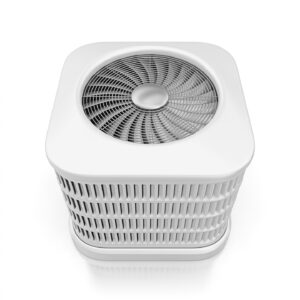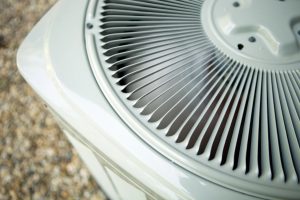
When you hear the word AC replacement, what comes to your mind? Is it the horror of seeing thousands of dollars deducted from your bank account? Or perhaps it’s the terrifying realization that it might take all day and you’d have to miss a day of work, or find someone to take care of the kids so they don’t get in the way? Just take a moment to think about those situations and remember they’re usually not how a replacement works.
Advertisements and the media have done a good job making us think we need to pinch every penny and repair our HVAC systems well past their retirement age. The truth is that homeowners end up saving more money with a normal replacement than repairing their ancient systems year after year. A new hvac unit should be installed by an experienced technician to ensure proper setup, efficiency, and long-term reliability. Professional HVAC contractors can perform load calculations to determine the correct system size, which is crucial for optimal performance and energy efficiency. It is important to consider your home’s heating needs during load calculations and system selection to ensure optimal performance and comfort. Selecting an HVAC system involves assessing home characteristics like size and insulation, as these factors significantly impact the system’s effectiveness. Most homeowners do not have the expertise needed to select, size, and install HVAC systems themselves, making professional assistance essential. Oversized HVAC units, for example, may cycle too frequently, leading to reduced comfort and inefficiency.
Today, we want to alleviate your concerns and talk honestly about replacing your HVAC in Manhattan, MT. No matter how unique your home is, or how particular your situation is, we’ve got your back! An hvac technician will assess your old unit and recommend the right equipment and units for your home to ensure optimal comfort and efficiency.
Your AC is old. If your system is more than 10–15 years old, it’s likely time for a replacement. Replacing an old unit with a new ac unit can reduce labor costs and improve performance, making your home more comfortable and energy efficient.
The average costs to install a new hvac unit can vary depending on the type of equipment selected and the labor costs involved. Proper installation by a qualified technician ensures your new system is installed correctly for maximum efficiency and longevity. Additionally, installing new ductwork can add between $2,000 and $3,000 to the overall HVAC installation costs, so it’s important to factor this into your budget. HVAC installation typically takes four to eight hours, depending on the complexity of the system, so plan accordingly when scheduling your installation. Safety precautions are necessary when installing HVAC systems due to gas and electrical concerns, which is another reason to rely on professional technicians. Installing an HVAC system without proper knowledge can void manufacturers’ warranties, emphasizing the importance of hiring trained professionals.
Getting Started with HVAC Installation
When it comes to creating a comfortable and energy-efficient home, the importance of a proper HVAC installation can’t be overstated. A well-installed HVAC system is the foundation for reliable heating and cooling, helping you maintain the perfect indoor climate while keeping energy bills in check. Whether you’re considering central air, heat pumps, or furnaces, understanding the installation process is key to maximizing the benefits of your investment.
A successful HVAC installation starts with careful planning and a clear understanding of your home’s unique needs. It’s not just about choosing the right equipment, it’s about making sure your new system is installed according to local building codes and industry best practices. This ensures your HVAC system operates efficiently, safely, and provides long term savings for years to come.
Partnering with a reputable HVAC company is essential. Experienced professionals will assess your home, recommend the best system for your space, and handle every step of the installation process. With the right team on your side, you can enjoy the peace of mind that comes from knowing your HVAC system is set up for optimal performance and energy efficiency.
How HVAC Systems Work
Before you dive into a new HVAC installation, it’s important to understand what makes up an HVAC system and how each component contributes to your home’s comfort and efficiency. At its core, an HVAC system includes an air conditioner or central air conditioner, a furnace, a thermostat, and the ductwork that distributes air throughout your home. Each of these components plays a vital role in maintaining the right temperature and air quality.
One of the most important factors to consider is the seasonal energy efficiency ratio (SEER) of your air conditioning system. The SEER rating measures how efficiently an air conditioner uses energy to cool your home, the higher the SEER, the lower your energy costs. When comparing cooling systems, look for models with high SEER ratings to maximize energy efficiency and minimize monthly bills.
You’ll also want to think about the type of system that best fits your needs. Central air conditioners are a popular choice for whole-home cooling, while ductless mini splits offer flexibility for homes without existing ductwork. The right system will depend on your home’s size, layout, and heating and cooling requirements. By understanding the basics of HVAC systems, you’ll be better equipped to make decisions that improve comfort, efficiency, and long-term savings.

